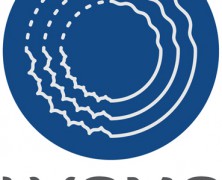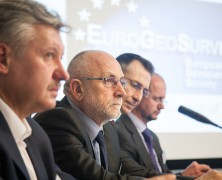What is the basic role of the Latvian Environment, Geology and Meteorology Centre in Latvia? What are the main research areas? State Ltd. “Latvian Environment, Geology and Meteorology Center” (LEGMC) is the largest institution in Latvia engaged in the collection and processing of geological information. However, the main areas of research at LEGMC also include meteorological and hydrological observations and forecasting, air quality monitoring, chemicals and hazardous waste management. For this work LEGMC employs 260 lead qualification specialists. LEGMC Information Analysis Department has several branches: Division of Geology, Division of Inland Waters (hydrology and hydrogeology), Chemicals and Hazardous Waste, and Air and Climate Division. The main activities in the field of geology can be divided into three basic groups: 1) accomplishment of State delegated assignments, 2) commercial side which includes preparation of geological information upon request of other institutions and private sector and 3) participating into national and international projects of different scale. The main tasks of LEGMC in the area of geology are following: Approval of mineral reserves according to the legislation; Preparation of the annual balance of mineral reserves, collection and storage of geological information; Preparation and provision of geological and geospatial information for the needs of the state, society and land users; Investigations of quality of subsoil, geological and geoecological investigations of different hazards to the environment and population; Preparation and evaluation of information regarding mineral deposits occurring in subsoil; Seismic monitoring. Collection and storage of geological information is the main task of LEGMC according to Law on Subsoil. Almost 30,000 thousand reports as well as maps and field books are stored in the State Geological Fund: results of geological mapping, results of geological prospecting, information on mineral deposits and mineral resources, results of geology investigations and engineering, geoecological investigations. This...
Interview with Ms Daiga Pipira, Head of Geology Division at the Latvian Environment, Geology and Meteorology Centre
posted by EuroGeoSurveys
EuroGeoSurveys Membership keeps growing – towards a pan-European Geological service
posted by EuroGeoSurveys
EuroGeoSurveys Membership –composed solely by the Geological Surveys of Europe – keeps growing steadily. At the EuroGeoSurveys General Meeting, held in Brussels on 24th March, EuroGeoSurveys welcomed 3 new members: the Latvian Environment, Geology and Meteorology Centre (LVGMC), the Geological Surveys of Serbia (GSS) and the Geological Survey of the Republic of Macedonia (GSRM). The vote, held in the morning during a closed-door session, brought the EGS Membership to 37 Geological Surveys, therefore almost fully covering the whole Europe. Ms. Anita Drondina, Head of Environment, Climate Change and Regional Policy Division at the Permanent Representation to the EU of Latvia, current President of the EU, and Ms. Inita Stikute, LVGMC Board Chair person, gave a presentation on the Latvian Environment, Geology and Meteorology Centre (LVGMC) and their interest in joining EGS as Full Member. The Geological Survey of Serbia (GSS) application as a Full Member was introduced by H.E. Ambassador Dusko Lopandic, Head of the Permanent Mission of the Republic of Serbia to the European Union, while Mr. Dragoman Rabrenovic, Director of GSS, presented the organization. H.E. Ambassador Andrej Lepavcov, Head of the Mission of the Republic of Macedonia to the European Union, introduced the application of the Geological Survey of Macedonia (GSRM). After the presentation of the Survey given by the Director Mr. Kostadin Jovanov, GSRM was officially introduced as Full Member of EGS. Moreover, in the afternoon session EuroGeoSurveys and the Geological Survey of Turkey (MTA) signed a Memorandum of Understanding. The agreement was signed by EGS President Mr. Koen Verbruggen and the MTA Director General Mr. Yusuf Ziya Cosar and is aimed to exchange scientific and technical experience and knowledge in areas such as marine geology, waste characterisation, climate change, preparation of geochemical atlas, etc. The enlargement of the EGS Membership,...


